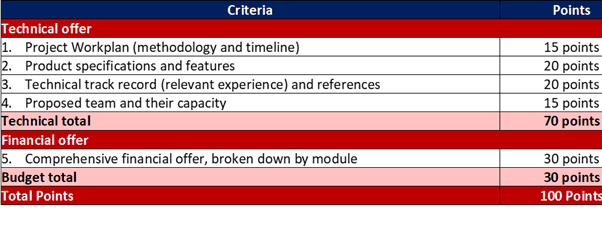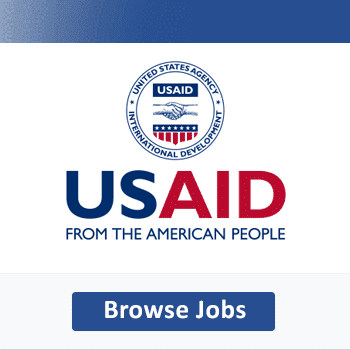Youth Employment Data Management System
Finance for Jobs for Consulting Services (F4J-CS) Company
Youth Employment Data Management System
Request for Proposal (RFP): Part One
Issuance Date: Wednesday, February 21st, 2024
Proposals deadline: Wednesday, March 14th, 2024 (End of day)
Description: Data Management System for youth employment Programs
Submitted to: Finance for Jobs for Consulting Services (F4J-CS) Company
Sama Ramallah building, 1st Floor, Jaffa Street, Ramallah
Point of Contact: Suha Salameh
Mobile: +970 569 122 111
This RFP document is comprised of the following parts:
Part One:
Part Two (Not part of this document):
To obtain Part 2 of the RFP, please follow instructions below.
First: Client Information
Finance for Jobs for Consulting Services (F4J-CS) is a Palestinian Private Limited Company, based in Ramallah, that manages the implementation of the first Palestinian Employment Development Impact Bond (DIB), with private-funding aimed at addressing the issue of youth unemployment in Palestine. The company is currently soliciting proposals from experienced suppliers to build a Youth Employment Data Management System as described in the Scope of Work section in this RFP.
Second: Questions, communication, and Proposal Submission
How to obtain Part Two: Interested bidders should send an email to the email address above, to request Part Two of the RFP, no later than Tuesday [27/02/2024], by End of Day. We expect to respond within 2 Business Days. The request should include:
Questions and Pre-bid meeting: To uphold the fairness of the competitive bidding process, all inquiries and communications regarding the RFP are to be discussed during a pre-bid meeting that will be held remotely online on Tuesday [05/03/2024]. The details of the meeting and the online link will be shared with companies that are eligible to receive Part Two as explained above.
How to submit the Full Proposal: Once you receive the above packet (Part Two), you will have the needed information to be able to submit the Full Proposal.
Third: Pricing and Quotations
Fourth: Evaluation and Award
Table: Selection criteria Table

The proposal for the development of the DIB data system should include:
The goal of this RFP is to identify the vendor who will be able to design and develop (or customize) a Data Management System for finance for Jabs Consulting Services Company (F4J-CS). Through local partners, the company offers training and employment services to unemployed Palestinian youth through multiple local Service Provider (SPs).
Interested vendors should possess expertise in developing online user-friendly data management platforms. The system will track youth, both individually and groups, during their journey in our employment programs, and streamline the tracking of progress of applicants from application to our programs, through acceptance, training, and to eventual employment. The vendor must be able to implement necessary updates and modifications to the system as per the evolving requirements of F4J-CS.
The main system users are the DIB manager team (F4J-CS staff), local Service Providers that the company contracts to deliver youth training and employment services, and the Independent Verification Agent (IVA) that verifies the validity of training and employment claims, that are submitted to Outcomes Funders.
The desired system should allow the DIB manager and its service providers to receive and capture data of unemployed youth who apply to the DIB on an ongoing basis for multiple employment programs and/or SPs. It will allow SPs to determine youth acceptance status, based on their eligibility, and front-line SPs’ staff to and collect and process data (in the field and/or in offices) for accepted youth who go through training and employment services and help SPs (and DIB management team) to track youth progress and overall performance throughout the journey, and make decisions to adapt the intervention based on real-time data analysis and prepare report submissions to other stakeholders.
Intellectual Property: F4J-CS will be the rightful owner of the Source Code (if possible, in case the system is developed from scratch) and all Intellectual Property associated with the system (all modules), and the entire database, and its contents, and will have full rights over the ways they can use these resources and data. The developed system will be the sole property of F4J-CS or any agencies designated by them. The vendor will have no right to commercially use or apply the software elsewhere.
A.1 Project workplan (methodology and timeline)
The selected vendor will carry out the required work in a cost-effective and timely manner. We expect the system (at least the first module, see below) to be ready for launching and receiving external youth applications by August 2024. We anticipate that there will be three phases to develop the system, with the following indicative activities under each phase:
Phase 1: Development (and/or customization) and testing
System analysis and requirements (development vs customisation): The Vendor will initially carry out a detailed business requirement assessment, and process re-engineering (if applicable). Our preference is to use an existing “off-the-shelf” system for the first module in specific, that is customised to fit our needs, as this would likely allow a quicker development and implementation and is assumed to be less costly. This would also reduce the risk that errors and bugs arise in the first months of implementation of the system, which would require more time for troubleshooting.
However, development of a new system would be considered a viable option if the offer is feasible from cost and time considerations. This stage will result in formulation of a Software Requirement Specification (SRS) document, and Software Design (SD) document and associated AS-IS and TO-BE workflows. This will include assessing of the existing system.
The SRS document should include all Modules of the vendors’ offered system (up to 3 modules), while noting that the SRS should list:
As part of this phase, the vendor is expected to provide:
Phase 2: Final configuration and deployment
As part of this phase, the vendor is expected to provide:
Phase 3: Ongoing maintenance
Ongoing support and/or maintenance over the DIB life (approximately 3-4 years), including making any required system updates, as and when necessary. This support should also include hosting of the system, user license update, etc. (over the DIB life). The support could take several forms: in person, remotely (via conference calls, telephone, or via email).
A.2 Bid components
Bids should address the Scope of Work and the Data Management System modules specification as set out in this RFP in two sections, Technical and Financial, described in more detail below.
Technical section:
1. Project Workplan: Detailed and clear work plan with efficient timetable for all phases and modules (as applicable), highlighting any major delivery bottlenecks or risks and proposed Any considerations or constraints around the capacity to deliver any of the phases or modules should also be flagged in this proposal, including availability of the proposed team members or start/stop dates.
2. System Modules specs and features: Detailed description of the modules specs and features based on the Software Requirement Specification, and business & users requirements specification. Therefore, in their proposal, vendors must provide a comprehensive explanation of the technology stack to be utilized. This includes details on databases employed, coding and development methodologies employed, frameworks utilized, and any other relevant technological components integral to the functionality and efficiency of the system.
3. Technical track record: Demonstrated experience in the development of relevant systems that effectively served the needs of Relevant systems may include systems for programmes that track Youth training and/or employment programs in terms of user groups, scale, intervention model and types of data collected. This section should also set out how you have previously supported long-term user satisfaction. In addition, the bidder should provide:
4. Team and capacity: Software development skills and experience in system design, user research, project management, data analytics and data visualization/dashboard design which would enable the delivery of the proposed scope of work in all Relevant team member experiences, efficient team allocation and roles proposed, relevant case studies and/or past examples of similar work completed by your team, experience and/or knowledge of the issue or context will be considered an asset.
Financial section:
Comprehensive financial offer: Using a template of your choice, a financial offer should be prepared that includes cost breakdown per module, with estimated level of effort, against a clear timeline for all phases. Your offer should be comprehensive and inclusive of all costs associated with the development (customization) and implementation of the system in all phases, including all other costs, such as licensing, hosting, etc. and while providing the most cost and time-efficient system. The offer must be presented in USD with VAT shown separately (if applicable).
The data management system consists of three modules, with the first being the fundamental mandatory module, and the other two being optional, based on budget availability and development timeline:
1. Performance Management Module (Fundamental/Required): This module of the system is meant to be the main unit in to track all services related to youth, in addition to program management, and other stakeholders, as well as handling the stages (youth applications, acceptance, Training, internships, job placement, employment, and sustained employment) that the applicant goes through, if accepted onto our programs. The applicant will have an option to submit an (application) through a list of programs created by the program management (Service Providers-SPs), search for and apply for the appropriate training programs that suit their needs. The SPs will be able to publish programs, search and screen and select eligible individuals from the database and acceptance them into the program. The SP will also be able to trace applicants through the entire youth journey stages, from acceptance to training, to internship to employment. It will be possible for F4J-CS to verify the data entry and approve each stage for each participant. This will allow to evidence the claim cases by SPs.
2. Financial Module (Optional): The goal is to transform the paper-based invoicing and payment tracking mechanism currently in place (between Service Providers and the DIB manager) into an automated data flow, to reduce administrative burdens, reduce errors, and control procedures. To clarify, this is not an accounting or financial management system for F4J-CS or its Services Providers, it is merely tracks and reflects the youth journey (training and employment units) into financial $$ values, to help tracking invoices and payments between F4J-CS and SPs.
3. Mobile App Module (Optional): Develop a native user-friendly mobile app (Android and iOS), to be used by youth and/or SPs as a two-way communication channel, to allow accepted youths into programs to update their employment profiles, upload documentation, and communicate with SPs and the IVA, and vice-versa. For clarification, the app should not be a replica of the main module but will be used for a limited number of functions, especially related to communication with youth (as individuals or groups), assist in reaching out to youth by giving them reminders or alerts, to input/update or upload certain data/documentation. The application should be fully interactive and compatible with well-known platforms or development tools and technologies, such as Google, Apple and Microsoft. The app should ensure continuous improvements and security updates (including security updates), to ensure a smooth and hassle-free experience.
--- --- --- End of Part One --- ---





















